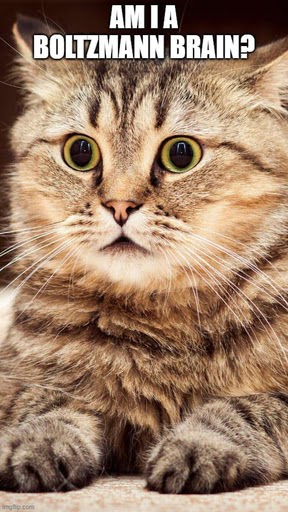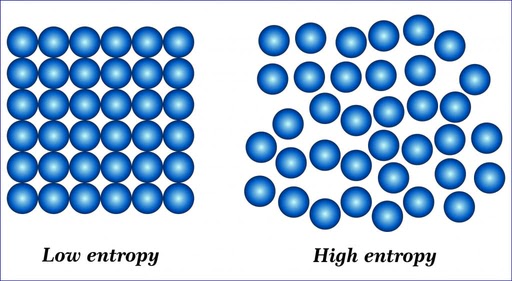The concept of a Boltzmann brain refers to a brain that has fake memories and is formed from particles in a randomly oriented system. Interestingly, such a brain is actually more probable than a real brain.
Imagine if, in this vast universe, brains suddenly came into existence at this very moment. Why brains? Well, because they possess consciousness and cognitive abilities, which are the only requirements for their existence to be considered.
These newly formed brains have memories and thoughts that are completely false. They have memories of a life that never happened, thoughts and ideas that are not real, and a perspective of the universe that is entirely fabricated. Yet, to these brains, everything feels real and true.
Given this, how would these brains ever come to realize that their memories are artificial and that their existence is more like a hallucination? Moreover, how would we know that we are not, in fact, these artificial brains known as Boltzmann Brains?

This dilemma is known as the Boltzmann Brain paradox, which emerged from Ludwig Boltzmann’s extensive discussions with other scientists regarding his interpretation of entropy. The Second Law of Thermodynamics states that the entropy, or disorder, of a system can either remain the same or increase, but it can never decrease.
Think about it: Have you ever seen a shattered glass magically come back together and become whole again?
 Entropy refers to the level of randomness or disorder in a system. High entropy indicates a highly disturbed or randomly oriented system (Photo Credit: Fouad A. Saad/Shutterstock).
Entropy refers to the level of randomness or disorder in a system. High entropy indicates a highly disturbed or randomly oriented system (Photo Credit: Fouad A. Saad/Shutterstock).
This is what the Second Law reveals: disorder can either stay the same or increase, but it can never decrease.
However, when Boltzmann applied statistical mechanics to the concept of entropy, it sparked heated debates among scientists that spanned several decades.
The Intricacy of Entropy
Boltzmann proposed that the probability of the entropy of a system increasing or remaining the same is high. However, this does not imply that the probability of entropy decreasing is zero. It is simply incredibly small that, for practical systems like a box of particles, it can be neglected.
Let’s consider another scenario: You are told that the probability of a ball turning from green to blue is one in a trillion for a particular box. Now, imagine that the box only contains 10 balls, and you have 10 attempts to try and change the color of a ball. Technically, the probability of a ball changing from blue to green is negligible, right?
But what if we expand our imagination to an infinite system?
This question forced scientists at the time to pause and reflect, leading to heated debates.
The Road to the Paradox
Scientists came to realize that if a system contains an infinite number of particles, there will be at least one instance or possibility among the countless possibilities where these particles would arrange themselves in a structured manner instead of a random orientation!
An instance of this is an eternally old universe. An eternally old universe signifies an unlimited number of possibilities where the disorder increases. Increased disorder, as we already know, equals increased randomness. However, as mentioned earlier, the apparently impossible phenomenon of disorder reduction is still achievable in an infinite phenomenon! So in an infinite universe, we have only ONE possibility out of an infinite number where the disorder decreases and the particles come together to form a structure, instead of existing randomly.
However, in a limited universe, there is no possibility of infinite possibilities, so the concept of a structured universe or an alive universe is irrelevant!
Boltzmann took this example of an eternally old universe and ran with it. He stated that at some point, all of the randomly organized particles in an eternally old universe must come together to form a structured system. That is what statistics suggest! Maybe this formation of a structure would mean all these particles converging into one point—leading to the Big Bang!
Another possible idea he proposed was of a local system in an infinitely large system, meaning one universe containing structure and life in the infinite system of a dead multiverse. Why a dead multiverse? Because a dead multiverse has no structure, which is what high disorder in a universe suggests.
So, no structure means more disorder and more disorder is infinitely more likely than reversing disorder. And we know that in an infinite system, there is only one possibility of reducing disorder. So, of course, in the infinite system of a multiverse, all universes except one will be dead!
But why would we even need an entire universe? Boltzmann believed that a local system as small as a galaxy could be structured and undead in an otherwise dead universe!
Boltzmann’s idea of an infinite multiverse stated that all universes were dead except for one. This was because of one in an infinite probability of disorder decreasing and forming a proper structure, like our universe, and hence being undead. (Photo Credit: Totti Cruz/Shutterstock)
Now this idea, which originated from the concept of thermodynamics, had entered the realm of astronomy. This was when Sir Arthur Edington, a renowned astronomer, physicist, and mathematician of the time, entered the discussion.
He took this extraordinary and thrilling train of thought a step further. Or rather, he simplified it a step further. He said that we don’t even need a whole galaxy to validate the existence of structure in a dead universe. We just need one intelligent observer, like you and me!
I mean, let’s be honest! What do you think is more likely – all the particles in an infinite universe converging for a Big Bang, or a local group of particles coming together to form an intelligent observer?
This idea of intelligent observers was taken to the ultimate peak by physicists and cosmologists, Albrecht and Sorbo, who said that we would only need the body part necessary for cognition and consciousness, i.e., the brain. A brain randomly existing out of nowhere in a dead universe (high disorder universe) containing memories of an entire life. A life that never actually was and is as artificial as its thoughts. This idea was called the Boltzmann Brain.
Let’s try to comprehend it in this manner. All of our memories up until now – our birth, our parents, our understanding of the solar system, going back as far as our understanding of the Big Bang itself – would be artificial if we are Boltzmann brains. These brains have no actual existence, but believe they do.
Are You A Boltzmann Brain?
Can you imagine that all of this discussion about the universe and its origin was happening long before Einstein’s theory of general relativity? Well, I suppose that’s more plausible than the idea that you could be a Boltzmann brain! When scientists grasped the validity of this paradox, everyone believed that they could never be a Boltzmann brain. I mean, obviously! I know my existence is not artificial. However, a Boltzmann brain would also not know that its memories and existence were artificial. This idea sparked a fire and an existential crisis in the scientific community, so researchers began studying the probability of being a Boltzmann brain.
They calculated that the likelihood of the existence of a Boltzmann brain in an infinite universe is infinitely greater than the probability of a human brain! This means that statistically, we are more likely to be surrounded by Boltzmann brains and to be Boltzmann brains ourselves, while it is highly unlikely that there is even a real brain somewhere! So, are we even real? Is the author of this article real? Or are you, the reader of this article, actually a Boltzmann brain?
How To Break The Boltzmann Paradox?
Now that we have fallen into an existential crisis, let’s be realistic. There is no way to know if we are a Boltzmann brain or not, but the probability is infinitely high that we are! However, here’s the catch! We have only been discussing Boltzmann brains in the context of a universe that has existed for an infinite amount of time. Perhaps the answer lies in the fact that the universe has not existed forever!
Scientists examined the cosmological models that support the existence of Boltzmann brains in an infinite universe. They concluded that these models are highly unstable and too self-undermining to be taken seriously. Therefore, they must be rejected, along with the existence of these Boltzmann brains. So, the paradox has been resolved, right? Well, kind of!
We now understand that the model of an infinitely long-existing universe is not valid. Instead, we believe that our universe has existed for a finite period of time since the Big Bang. But the question that has kept scientists awake at night remains unanswered. What existed before the Big Bang? Nothing? Or a lifeless universe that led to the convergence of particles and caused the Big Bang, resulting in a structured universe? Hmm… sounds a lot like the Boltzmann brain universe to me!
